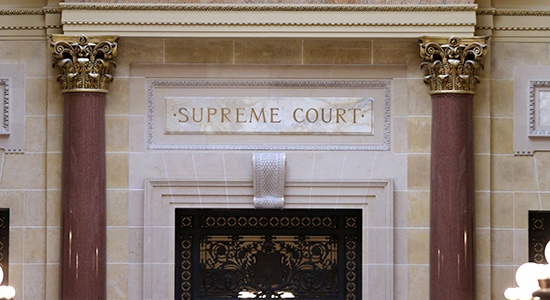
Jan. 2, 2018 – Menards CEO John Menard Jr. recently fought off an appeal in the long-running dispute between his business and his ex-fiancée, Minnesota lawyer Debra Sands, who sued Menard Inc. and affiliates on the grounds of unjust enrichment.
Sands, who was involved in a romantic relationship with Menard from 1997 to 2006, argued that she was entitled to a portion of his accumulated wealth because the two were engaged in a “joint enterprise” to grow the Menard businesses while together.
But in Sands v. Menard, 2017 WI 110 (Dec. 29, 2017), the Wisconsin Supreme Court ruled that Sands did not plead sufficient facts to support an unjust enrichment claim because Sands did not show a “joint enterprise” or meet other required elements.
“Sands has failed to demonstrate facts which, if true, would support her legal conclusion that she and Menard had a joint enterprise that included accumulation of assets in which both she and Menard expected to share equally,” wrote Chief Justice Patience Roggensack for a five-justice majority. Two justices did not agree with that conclusion.
Justice Shirley Abrahamson, joined by Justice Ann Walsh Bradley, said Sands pleaded facts sufficient to establish her claim and the case should be remanded for trial.
The supreme court was split on the unjust enrichment issue but ruled unanimously that an alleged ethics violation did not bar Sands from pursuing the claim in the first place.
In 2016, a three-judge panel for the Wisconsin Court of Appeals ruled that Sands’ claims were barred because she violated an ethics rule that regulates business transactions between lawyers and clients. The supreme court reversed on that point.
Supreme Court Rule (SCR) 20:1.8 generally prohibits lawyers from entering business transactions or acquiring business interests that are adverse to a client. Menard argued that Sands violated this rule while helping Menard create a private equity fund.
Menard produced evidence that Sands had been attempting to obtain an ownership interest or employment with the company that Menard was engaging to start the fund while at the same time representing him in negotiations. The appeals court ruled that violating SCR 20:1.8 was an absolute bar to Sands’ claim of unjust enrichment.
The supreme court said the appeals court erred. “Supreme Court Rules may guide courts in determining required standards of care generally, [but] may not be employed as an absolute defense in a civil action involving an attorney,” the chief justice wrote.
The supreme court also sided with Sands on a counterclaim against her for breach of fiduciary duty, concluding that Menard’s claim was barred by the statute of limitations.
But Menard was successful in defending the unjust enrichment claim. Sands had argued that she was entitled to an ownership interest in the Menard property because she made contributions to a joint enterprise between them but received nothing.
Sands noted that she contributed to the Menard enterprise both professionally and personally, providing legal and business services, advice, and counsel. And she argued that she supervised and supported other personal aspects of Menard’s life.
The supreme court noted that unjust enrichment claims require that the plaintiff confer a benefit on the defendant, the defendant is aware of the benefit conferred, and the defendant accepts or retains the benefit under circumstances that make it inequitable.
The supreme court distinguished cases in which the joint contributions of two unmarried parties resulted in accumulation of wealth by one party alone.
“In each of those cases, the parties had very little, and it was only through their joint efforts that their assets or property increased,” the chief justice wrote. “Sands, however, did not support Menard as he built his empire; he already had it when they met.”
The majority noted that Sands did not allege that she and Menard comingled funds, made joint purchases of real estate or other property, or that she obligated herself to any debts – factors that may weigh in favor of finding that it was a joint enterprise.
However, the dissenting justices said Sands pleaded facts sufficient to support her claim and Menard's preexisting wealth should not matter.
“The fact that Menard was already successful does not preclude Sands’ unjust enrichment claim if Menard’s assets became more valuable as a result of the parties’ joint efforts,” Justice Abrahamson wrote.
